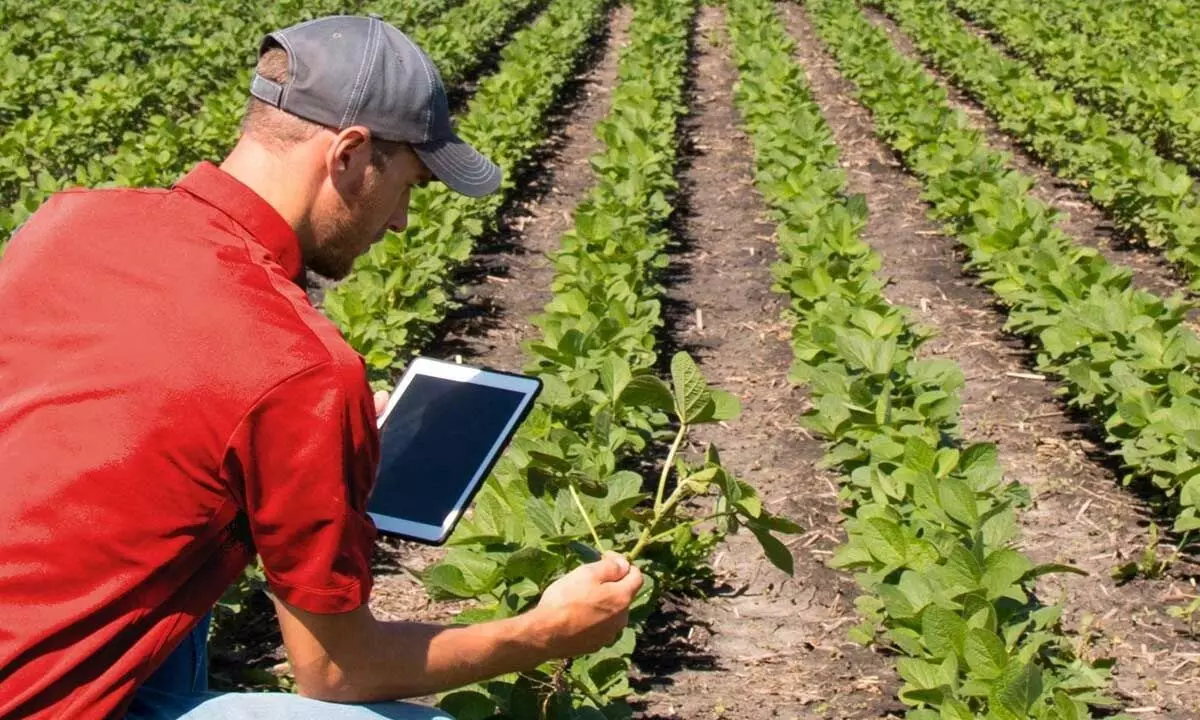Career opportunities blooming in sustainable farming and agroecology

There are many more such tales of change. India, a country known for its rich agricultural heritage, is undergoing a transformative shift towards sustainable farming and agroecology
There are many more such tales of change. India, a country known for its rich agricultural heritage, is undergoing a transformative shift towards sustainable farming and agroecology. This shift is not only crucial for environmental conservation but also opens up a myriad of career opportunities for professionals passionate about blending agriculture with environmental stewardship. As the country grapples with challenges like climate change, soil degradation, and water scarcity, the focus on sustainable practices is more important than ever.
Understanding Sustainable Farming and Agroecology
Sustainable Farming is an approach that focuses on producing food in ways that are environmentally sound, economically viable, and socially responsible. It emphasizes practices that enhance soil health, conserve water, and reduce the use of chemical inputs. This method not only aims to increase productivity but also strives to preserve the ecological balance and biodiversity of farming systems.
Agroecology, on the other hand, is a scientific discipline and a practice that integrates ecological principles into agricultural production. It promotes biodiversity, soil health, and ecosystem resilience, and often involves traditional knowledge and practices. Agroecology aims to create farming systems that are not only productive but also sustainable and harmonious with the natural environment.
Few examples of Agroecology practices:
1. Zero Budget Natural Farming (ZBNF): Promotes chemical-free farming by utilizing local resources, enhancing soil health, and improving biodiversity.
2. Millets Cultivation: Traditional practices in states like Karnataka and Rajasthan focus on growing drought-resistant millets, enhancing food security and nutrition.
3. Cuba’s Organic Agriculture Movement: Post-Soviet Union, Cuba shifted towards urban organic farming, utilizing permaculture and community gardens to ensure food availability.
4. Agroforestry in Brazil: Integration of trees with crops and livestock, improving biodiversity, soil health, and carbon sequestration in regions like the Amazon.
Career Opportunities in Sustainable Farming and Agroecology
1. Sustainable Farming Consultants
Sustainable farming consultants play a critical role in advising farmers on best practices for soil management, water conservation, and crop selection. They work with agricultural businesses and individual farmers to implement sustainable practices that can increase productivity while minimizing environmental impact. This role requires expertise in agricultural sciences, environmental management, and knowledge of local farming conditions.
2. Agroecologists
Agroecologists study the interactions between agricultural systems and the environment. They conduct research to develop and promote sustainable farming practices and work on projects related to soil health, pest management, and biodiversity. Agroecologists often work with research institutions, universities, and non-governmental organizations (NGOs) to advance knowledge and implement practical solutions in agroecology.
3. Soil and Water Conservation Specialists
Soil and water conservation specialists focus on preventing soil erosion, managing water resources, and enhancing soil fertility. They work on projects that involve the implementation of conservation practices such as contour plowing, terracing, and the use of cover crops. This role is essential in maintaining soil health and ensuring the sustainability of agricultural lands.
4. Organic Farming Experts
Organic farming experts specialize in methods that avoid synthetic pesticides and fertilizers. They work with farmers to transition from conventional to organic farming practices, ensuring compliance with organic standards and certifications. Their role includes educating farmers about organic methods, pest management, and organic soil amendments.
5. Farm Management Advisors
Farm management advisors assist farmers in optimizing their operations to achieve economic and environmental sustainability. They offer guidance on crop rotation, diversification, and efficient resource use. Advisors help farmers make informed decisions that balance profitability with environmental responsibility.
6. Research Scientists
Research scientists in the field of sustainable agriculture focus on developing new technologies and practices that support sustainable farming. They conduct experiments, analyze data, and publish findings that contribute to advancing agroecological practices. Their work often involves collaboration with academic institutions, government agencies, and industry stakeholders.
7. Environmental Policy Analysts
Environmental policy analysts work on shaping policies related to sustainable agriculture and environmental conservation. They analyze data, assess the impact of current policies, and advocate for changes that promote sustainable farming practices. This role involves working with government bodies, NGOs, and advocacy groups to influence agricultural policy.
8. Agricultural Extension Officers
Agricultural extension officers bridge the gap between research and practical application. They provide training and support to farmers on sustainable practices and technologies. Their role includes organizing workshops, demonstrations, and field visits to help farmers adopt and implement new practices.
9. Sustainable Agriculture Educators
Educators in sustainable agriculture develop and deliver training programs for students, farmers, and other stakeholders. They create curricula and educational materials that promote sustainable farming practices and agroecology. This role often involves working with educational institutions, extension services, and community organizations.
10. Non-Governmental Organization (NGO) Professionals
NGO professionals working in the field of sustainable agriculture focus on promoting and implementing sustainable farming practices through various projects and initiatives. They work on community outreach, project management, and advocacy to support sustainable agriculture and agroecology.
The transition towards sustainable farming and agroecology in India represents not only a critical need for environmental conservation but also a growing field of career opportunities. Professionals in these areas play a vital role in addressing the challenges of modern agriculture while promoting practices that protect and enhance the environment. As India continues to embrace these sustainable approaches, the demand for skilled individuals in this sector is expected to rise, offering rewarding careers for those passionate about making a positive impact on both agriculture and the environment.
(The author isfounder of Smiling Tree)















